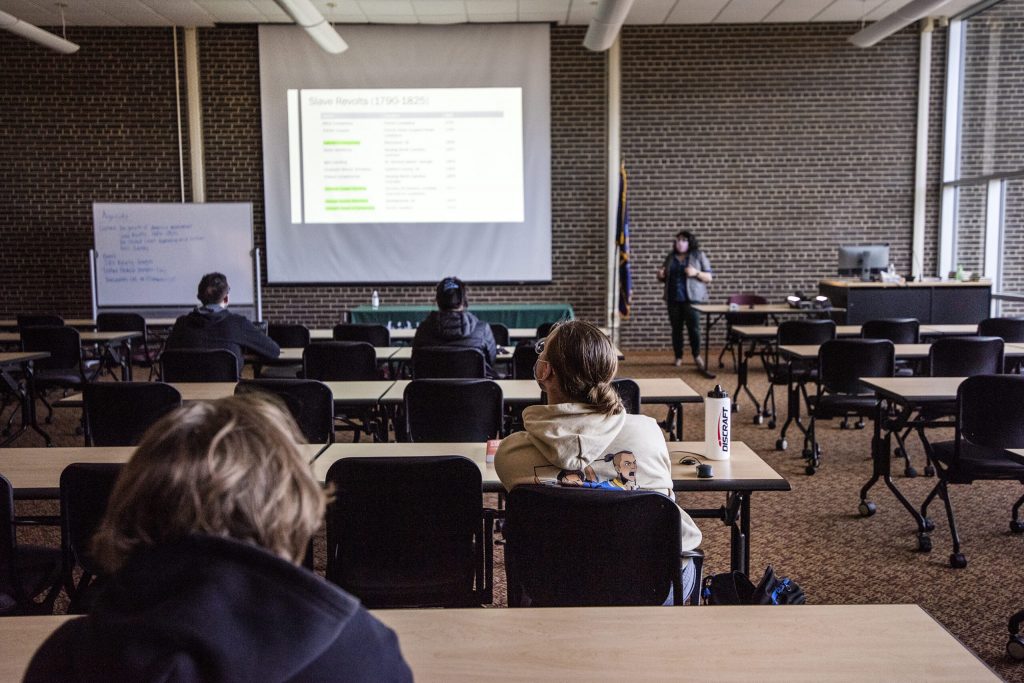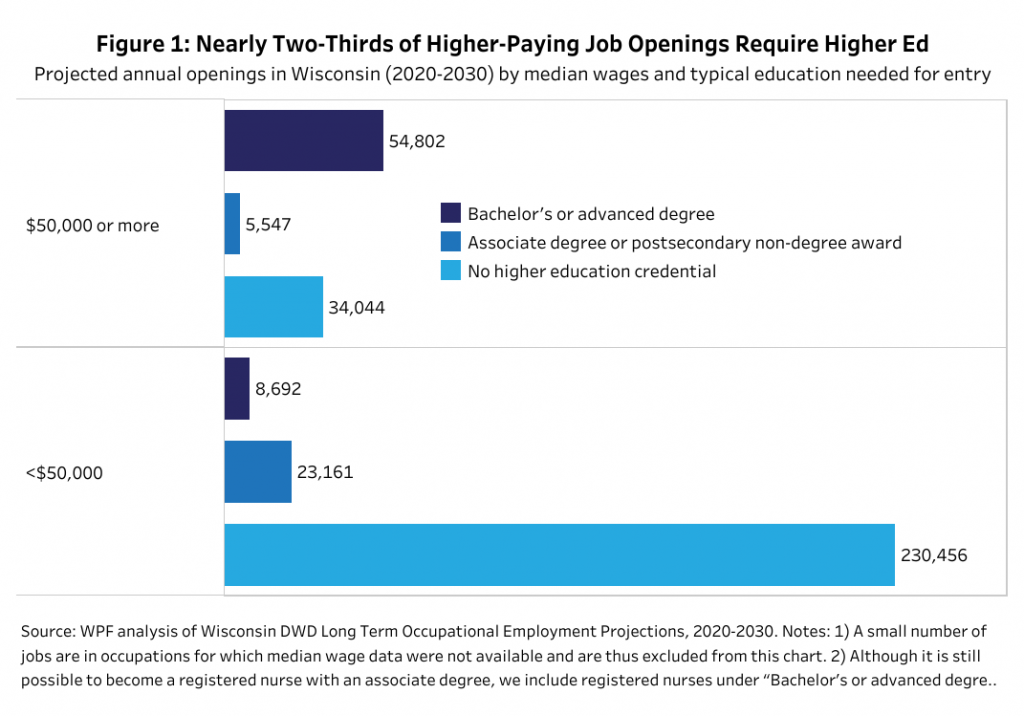Most of State’s High-Paying Future Jobs Require College Degree
Report shows over half of jobs paying $50,000 or more will require a bachelor's degree.

College students attend a class Friday, Feb. 18, 2022, at the UW-Green Bay campus in Sheboygan, Wis. Angela Major/WPR
Most of the higher-paying jobs opening in Wisconsin through the end of the decade will require at least a bachelor’s degree.
That’s according to a new report by the Wisconsin Policy Forum, which examined employment projections from the state Department of Workforce Development for 2020 to 2030.
Joe Peterangelo, a senior researcher at Wisconsin Policy Forum and the report’s author, said the goal of the study was to provide additional context to debates surrounding the value of higher education as many grapple with student loan payments.
“We were specifically interested in those higher-paying jobs because that’s part of the debate,” he said.
While 74 percent of all projected annual job openings in the state through 2030 typically will not require a college degree or credential, such occupations only account for 26 percent of the openings with median salaries of $50,000 or more, the report said.
Of annual high-paying job openings, 58.1 percent will require a bachelor’s or advanced degree, and 5.9 percent will require an associate degree or postsecondary non-degree award, the report says.
“Only about a third (of the jobs) in that pool are jobs that do not require any sort of college credential, but that’s still a good number of jobs,” Peterangelo said.
The Wisconsin Policy Forum also found that 91 percent of projected job openings with a median salary of $75,000 or more require a bachelor’s or advanced degree.
Those numbers include job openings from retirements as well as new jobs created. When looking exclusively at expected new jobs, the report says nearly 70 percent of high-paying jobs will require at least a bachelor’s degree.
“What that says to me is that the future is looking like it’s more favoring higher education than even the current existing job market that the state has,” Peterangelo said. “That’s another indication that a college degree is certainly going to be valuable.”
“The jobs that have fared better in the last decade and then during the pandemic, were higher-paying jobs, which — as our new analysis shows — tend to be more likely to require a college degree,” Peterangelo said.
After the report’s release, Universities of Wisconsin President Jay Rothman took to social media to highlight what he called “further evidence of the value of a higher education.”
“There’s no better higher education value than our constellation of 13 universities that serve all Wisconsinites,” Rothman wrote. “We are the most affordable in the Midwest and the average debt load of our graduates is lower now than it was 10 years ago.”
Prior to the Wisconsin Policy Forum report’s release, another study from the University of Wisconsin-Extension found state residents with a bachelor’s degree, on average, earn more money over their entire career than those with only a high school degree. The Extension report found lifetime earnings for individuals with a bachelor’s degree came in at nearly $2.5 million, but only $1.6 million for those with a high school diploma.
“The decision to invest in education does have a gender dimension,” wrote Steven Deller, the report’s author and an agricultural and applied economics professor at UW-Madison. “Whether this increase in average earnings from pursuing higher education justifies the associated costs is a decision unique to each person.”
Peterangelo said information about income and job opportunities for those with a college degree can be helpful for guidance counselors, parents and students.
“Figuring out whether college is right for a certain person, what college to go to and what to study, those are all really complicated things,” he said. “It’s all very individually based. We’re certainly not saying that college is for everyone.”
Report: Most of Wisconsin’s high-paying future job openings require a college degree was originally published by Wisconsin Public Radio.





















